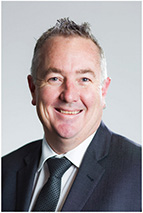Part 2 - Overview of the Office
Roles and functions
The Office of the Commonwealth Ombudsman (the office) is a non-corporate Commonwealth entity established under the Ombudsman Act 1976 (the Act). The Act came into effect on 1 July 1977 and is administered by the Prime Minister.
The office seeks to ensure that administrative action by Australian Government agencies is fair and accountable. It does this by handling complaints, conducting investigations, performing audits and inspections, encouraging good administration, and discharging other specialist oversight tasks. The office also influences improvement in public administration in neighbouring countries through collaboration with partner agencies.
The Commonwealth Ombudsman is also the:
- Defence Force Ombudsman
- Postal Industry Ombudsman
- Overseas Students Ombudsman
- Private Health Insurance Ombudsman
- Immigration Ombudsman
- Law Enforcement Ombudsman
- Norfolk Island Ombudsman
- ACT Ombudsman.
The office has the following major statutory functions:
- Complaint investigations: conducting investigations into the administrative actions of Australian Government officials, agencies and their service providers upon receipt of complaints from individuals, groups or organisations. This includes investigating the actions of registered private providers of training for overseas students, registered private postal operators and private health insurance providers.
- Own-motion investigations: on the Ombudsman's own initiative, conducting investigations into the administrative actions of Australian Government agencies, registered private providers of training for overseas students, registered private postal operators and private health insurance brokers. These investigations often arise from insights gained through individual complaints and our other oversight responsibilities.
- Compliance audits: inspecting the records of agencies such as the Australian Federal Police (AFP) and Australian Crime Commission (ACC) to ensure they comply with legislative requirements applying to selected law enforcement and regulatory agencies.
The Telecommunications (Interception and Access) Amendment (Data Retention) Act 2015 created new oversight responsibilities for the office. These involve mandatory compliance audits of relevant entities' use of covert and intrusive powers.
- Immigration detention oversight: under s 486O of the Migration Act 1958, reporting to the Immigration Minister on the detention arrangements for people in immigration detention for two years or more (and on a six-monthly basis thereafter). Our reports, as well as the Minister's responses, are tabled in the Parliament. In addition, as Immigration Ombudsman, the office also oversees immigration detention facilities through a program of regular announced and unannounced visits to detention centres.
- The Commonwealth Public Interest Disclosure scheme: the Public Interest Disclosure Act 2013 established a Commonwealth Government scheme to encourage public officials to report suspected wrongdoing in the Australian public sector. The office is responsible for promoting awareness and understanding of the Act and monitoring its operation; as well as providing guidance, information and resources about making, managing and responding to PIDs.
- Private health insurance consumer information: this includes managing the consumer website (PrivateHealth.gov.au), producing comparative complaint and performance reports about private health insurers, providing a range of advisory information products for consumers, and responding to consumer enquiries about health insurance.
Handling complaints and conducting own-motion investigations are our traditional activities, and account for most of our work. The guiding principle in our investigations is to examine whether any administrative action is unlawful, unreasonable, unjust, improperly discriminatory, factually deficient or otherwise wrong.
At the conclusion of an investigation, the Ombudsman may recommend that corrective action be taken by an agency, either specifically in an individual case or, more generally, by a change to relevant legislation, administrative policies or procedures.
The office seeks to foster good public administration within Australian Government agencies by encouraging principles and practices that are sensitive, responsive and adaptive to the needs of members of the public. The office is impartial and independent and does not provide advocacy services either for complainants or agencies.
The Ombudsman may consider complaints about most Australian Government departments and agencies, and most contractors delivering services to the community for, or on behalf of, the Australian Government.
The Commonwealth Ombudsman performs the following specialist roles:
- Defence Force Ombudsman (DFO)—to investigate action arising from the service of a member of the Australian Defence Force. The DFO can investigate complaints from current or former members of the Australian Defence Force about Defence Force employment matters.
- Postal Industry Ombudsman (PIO)—to investigate complaints about Australia Post and private postal operators that elect to register with the PIO scheme.
- Overseas Students Ombudsman (OSO)—to investigate complaints from overseas students about private education providers in Australia. The OSO also gives private registered providers advice and training about best practice for handling complaints by overseas students.
- Private Health Insurance Ombudsman (PHIO)—to protect the interests of private health insurance consumers. This is done in a number of ways including dispute resolution, identifying systemic issues within the practices of private health funds, and providing advice and recommendations to Government and industry. The Ombudsman can deal with complaints from health fund members, health funds, private hospitals or medical practitioners. Complaints must be about a health insurance arrangement. This function was transferred to the office from 1 July 2015.
- Immigration Ombudsman—to investigate action taken in relation to immigration administration (including monitoring immigration detention). The Ombudsman has a specific statutory role under s 486O of the Migration Act 1958 to report to the Minister for Immigration and Border Protection concerning the circumstances of any person who has been in immigration detention for two years or more.
- Law Enforcement Ombudsman—to investigate the conduct and practices of the Australian Federal Police and its members. In addition, under the AFP Act, the Ombudsman is required to review the administration of the AFP's handling of complaints, through inspection of AFP records. The results of these reviews must be provided to the Parliament on an annual basis.
- Norfolk Island Ombudsman—during 2015–16, the Commonwealth Ombudsman was designated as the Norfolk Island Ombudsman when dealing with matters relating to the Norfolk Island public service and 'prescribed authorities', as well as Australian Government agencies.
- ACT Ombudsman—under the ACT Self-Government (Consequential Provisions) Act 1988 (Commonwealth), the Commonwealth Ombudsman discharges the role of ACT Ombudsman. A service agreement between the Commonwealth Ombudsman and the ACT Government covers this role. The work of the ACT Ombudsman is set out in a separate annual report made to the ACT Legislative Assembly under the Ombudsman Act 1989 (ACT).
Freedom of Information complaints
The handling of complaints about actions taken by Australian Government agencies relating to Freedom of Information (FOI) matters under the Freedom of Information Act 1982 was transferred to the office from 1 January 2015. However, from 1 July 2016, the Office of the Australian Information Commissioner (OAIC) resumed the investigation of these complaints.
Organisational structure
The national office of the Commonwealth Ombudsman is in Canberra. There are also offices in Adelaide, Brisbane, Melbourne, Perth and Sydney.
The Ombudsman and Deputy Ombudsman are statutory officers appointed under the Ombudsman Act. Employees are engaged under the Public Service Act 1999. Senior Assistant Ombudsmen are Senior Executive Service Band 1 employees. The Executive and Senior Management structure is provided at Figure 1.
Figure 1: Executive and Senior Management structure at 30 June 2016

Senior Leadership Group members
Colin Neave—Commonwealth Ombudsman

Colin Neave is the Commonwealth and ACT Ombudsman, Regional President of the Australasian and Pacific Ombudsman Region of the International Ombudsman Institute, and Chair of the Pacific Ombudsman Alliance. He was Chair of the Commonwealth Consumer Affairs Advisory Committee between 1997 and 2013 and President of the Administrative Review Council. He served as the Banking and Financial Services Ombudsman and then Chief Ombudsman of the Financial Ombudsman Service between 1996 and 2011.
He was Company Secretary of listed Company AMI Toyota between 1982 and 1987 and also a Director and Company Secretary of Toyota Group companies in Australia.
Colin has held senior positions with various state governments, including Secretary of the Attorney-General's Department in Victoria, Commissioner for Consumer Affairs in South Australia and Managing Director of the Legal Aid Commission in New South Wales. He also served as Deputy Secretary of the Attorney-General's Department (Commonwealth).
Colin is a member of the Order of Australia.
Richard Glenn—Deputy Ombudsman

Richard joined the office in September 2013 for a five-year term.
Richard is responsible to the Ombudsman for the day-to-day operation of the office and, as a statutory office holder, can exercise the powers of the Ombudsman.
Before joining the office, Richard held senior positions in the Attorney-General's Department where he was responsible for major reforms to Commonwealth privacy law and policy, personal property securities law and the Commonwealth's national security law framework.
Richard has also held SES roles with responsibility for copyright, freedom of information and native title law and policy.
He has represented Australia in international fora, including copyright treaty negotiations. A lawyer by training, Richard was an associate to a High Court judge and has worked as a solicitor for the Department of Finance and in private practice.
Rodney Lee Walsh —Senior Assistant Ombudsman, Integrity Branch

Rodney Lee Walsh joined the office in July 2011. He is responsible for law enforcement and defence; statutory monitoring and reporting to Parliament on the exercise of covert operations, surveillance devices and telecommunications interceptions powers by state and federal police and other law enforcement entities; and international ombudsman programs across 19 countries.
Rodney is a lawyer and mediator by training; inaugural convenor of the Commonwealth Complaint Handling Forum and, since 2005, has held a range of SES roles including IT applications development, senior executive lawyer, organisational strategy, and state and national manager delivering a range of workplace relations inspectorate and employment programs.
George Masri —Senior Assistant Ombudsman, Social Services, Indigenous and Public Interest Disclosures

George Masri has worked in the office since February 2005. During this time, he has been responsible for a variety of areas including Immigration, Overseas Students, Public Interest Disclosures and the Operations (public contact, complaint management and investigation) area.
George has a broad background in public administration, including as a senior business consultant for a company developing automated systems to assist with administrative decision-making, a ministerial adviser in the Immigration, Veterans' Affairs and Environment portfolios, a principal solicitor in community legal centres and as an associate to a member of the Administrative Appeals Tribunal.
In 2015 George became a Fellow of the National Institute of Public Administration.
Doris Gibb —Senior Assistant Ombudsman, Immigration, Industry and Territories Branch

Doris Gibb joined the office in June 2013 as Senior Assistant Ombudsman for Immigration and Overseas Students. The branch has since expanded to include the Postal Industry Ombudsman, Indian Ocean Territories and the Australian Capital Territory Ombudsman.
Her career in the Australian Public Service started in 1995 after 12 years with the Royal Australian Air Force. She has performed a range of leadership roles across the public service and has led several public policy initiatives in Centrelink, DEEWR, the Defence Materiel Organisation and the Attorney-General's Department.
Her experience ranges from delivery of unemployment services to the formation of industry policy for small business.
Helen Fleming —Senior Assistant Ombudsman, Operations Branch (photo unavailable)
Helen Fleming is responsible for the handling and investigation of complaints by the Operations Branch. She has worked in a variety of roles in the office since joining in 2003.
Prior to 2003, Helen worked in a variety of Commonwealth agencies and in particular, for over twelve years as the Assistant Secretary of the Legal Services Branch in the then Department of Family and Community Services where she was responsible for the provision of legal advice and management of the portfolio's extensive legislation program. She has also worked for the Australian Taxation Office, the Department of Finance and the House of Representatives Expenditure Committee.
Helen has also been admitted as a Barrister of the Supreme Court of New South Wales.
Dermot Walsh —Chief Operating Officer (acting), Corporate Services Branch

Dermot Walsh joined the office in November 2014 as the Chief Financial Officer. Since October 2015 he has been acting as Chief Operating Officer and leads the Corporate Services Branch.
Before joining the office, he held leadership roles in both the Australian and ACT Public Service, in a diverse range of organisations including: the ACT Land Development Agency, ACT Economic Development Directorate, Comcare, the National Gallery of Australia, the Defence Service Homes Insurance Scheme and the Department of Veterans' Affairs.
Dermot is a Fellow member of CPA Australia.
Outcome and program structure
The planned outcome for the office as described in the 2015–2016 Portfolio Budget Statement (PBS) was:
Fair and accountable administrative action by Australian Government entities and prescribed private sector organisations, by investigating complaints, reviewing administrative action and statutory compliance inspections and reporting.
The office only has one program, which is 'the Office of the Commonwealth Ombudsman'.
Purpose of the office
The purpose of the office, as detailed in the 2015–16 Corporate Plan, is to:
- provide assurance that the organisations the office oversees act with integrity and treat people fairly
- influence systemic improvement in public administration in Australia and the region.
